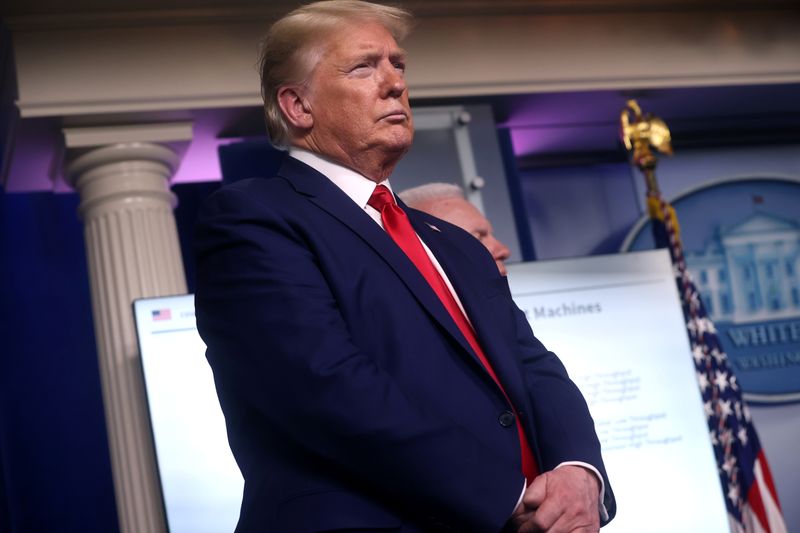By Jeff Mason
WASHINGTON (Reuters) - U.S. President Donald Trump said on Monday that his administration was looking at the possibility of stopping incoming Saudi Arabian crude oil shipments as a measure to support the battered domestic drilling industry.
"Well, I'll look at it," Trump told reporters at a daily news conference after he was asked about requests by some Republican lawmakers to block the shipments under his executive authority.
"I heard just as I’m walking into the room. We certainly have plenty of oil, so I’ll take a look at it."
U.S. crude oil futures collapsed below $0 on Monday for the first time in history, amid a coronavirus-induced supply glut, ending the day at a stunning minus-$37.63 a barrel as desperate traders paid to get rid of oil.
The collapse in prices has threatened to tilt the once-booming U.S. oil industry into bankruptcy.
Trump described the drop as short-term and stemming from a "financial squeeze" but said the oil industry was hurting from a lack of demand.
"The problem is no one is driving a car anywhere in the world, essentially…Factories are closed, businesses are closed," Trump said. "We had really a lot of energy to start off with, oil in particular, and then all of a sudden they lost 40%, 50% of their market."
He said the global producer group known as OPEC+ had agreed to cut production by some 15 million barrels per day, and said weak prices could force more declines for economic reasons.
"They have to do more by the market, it's the same thing over here. If the market is the way it is, people are going to slow it down or they're going to stop. That's going to be automatic, and that's happening," he said.
Trump reiterated that his administration plans to top up the nation's emergency crude oil stockpile as prices plunge.
The Department of Energy is in the process of leasing some of the roughly 77 million barrels of available space in the Strategic Petroleum Reserve to U.S. oil companies to help them deal with dearth of commercial storage as the coronavirus outbreak crushes domestic energy demand.

The administration initially wanted to purchase the crude oil directly, but Congress has yet to approve the funding.